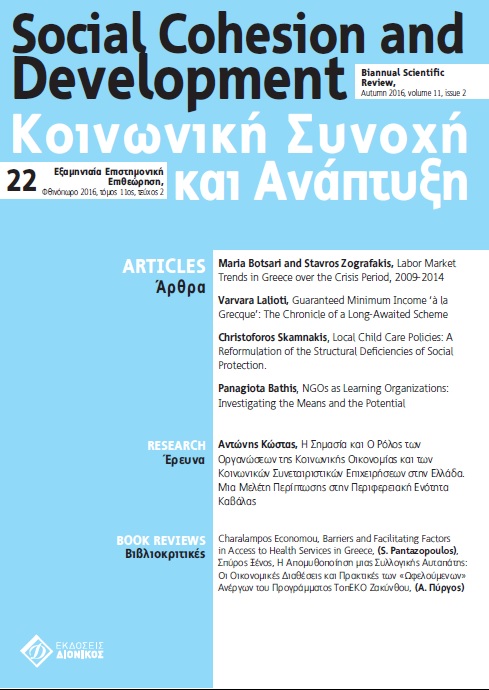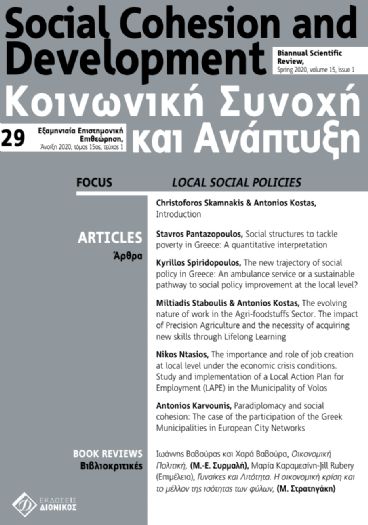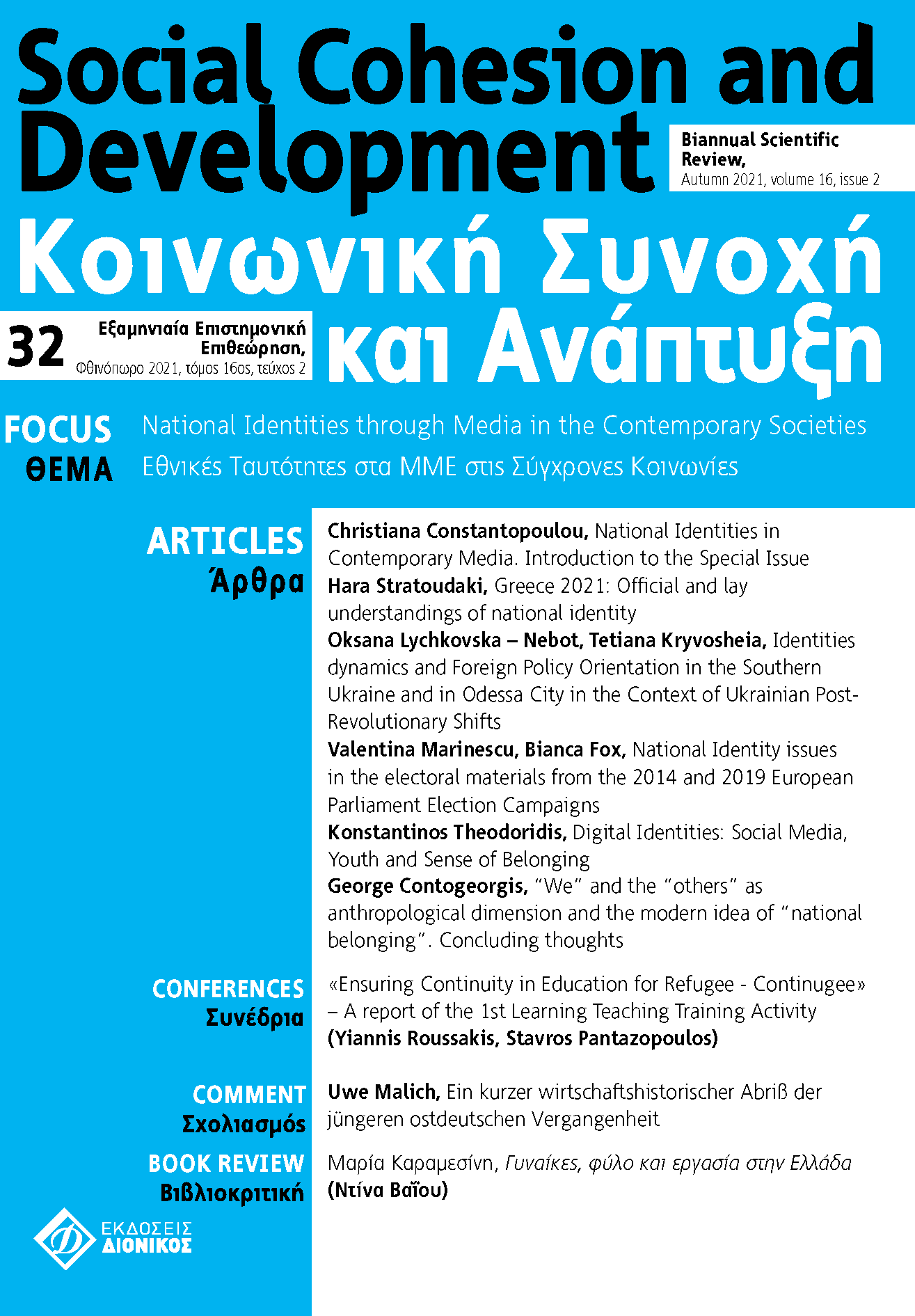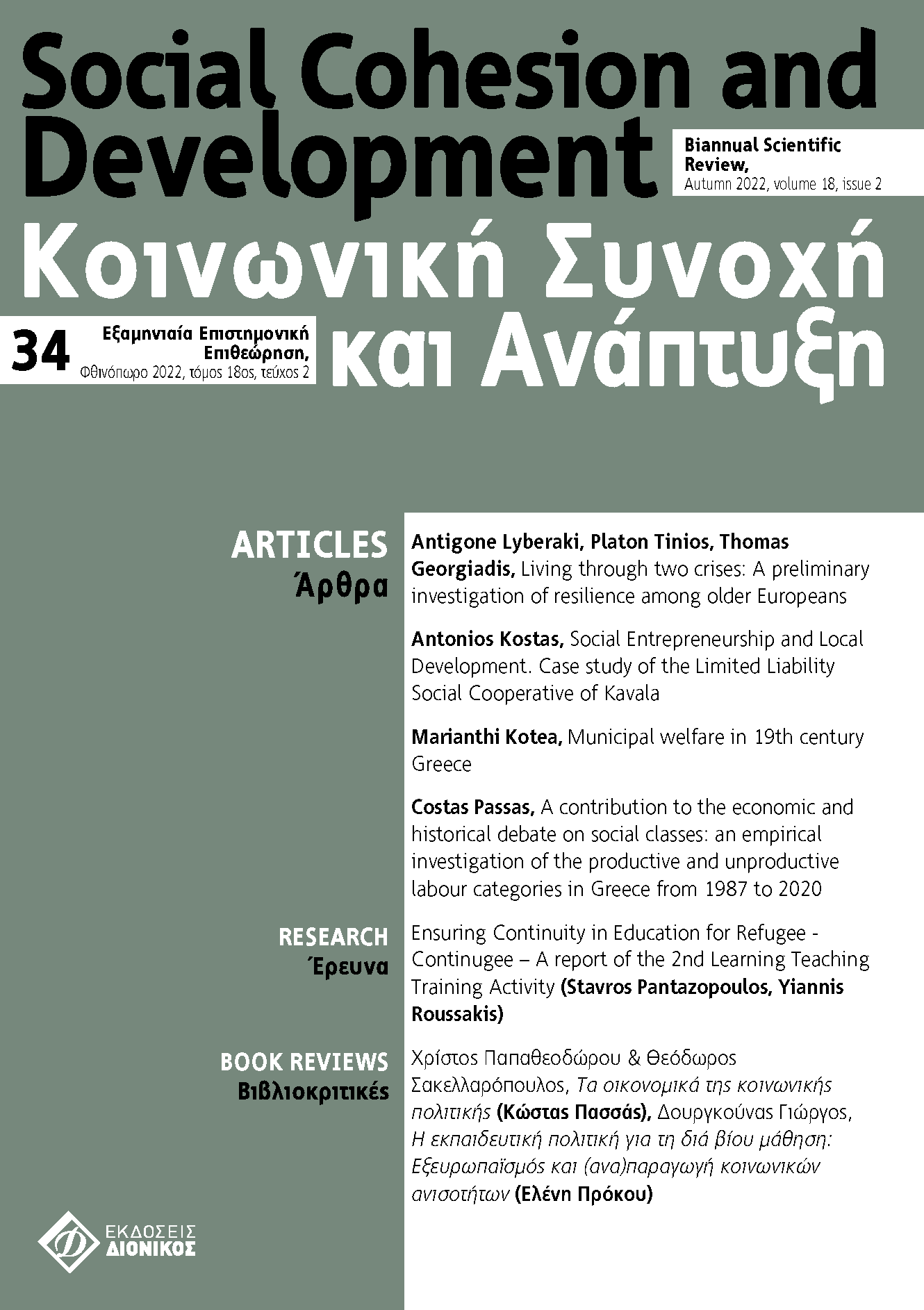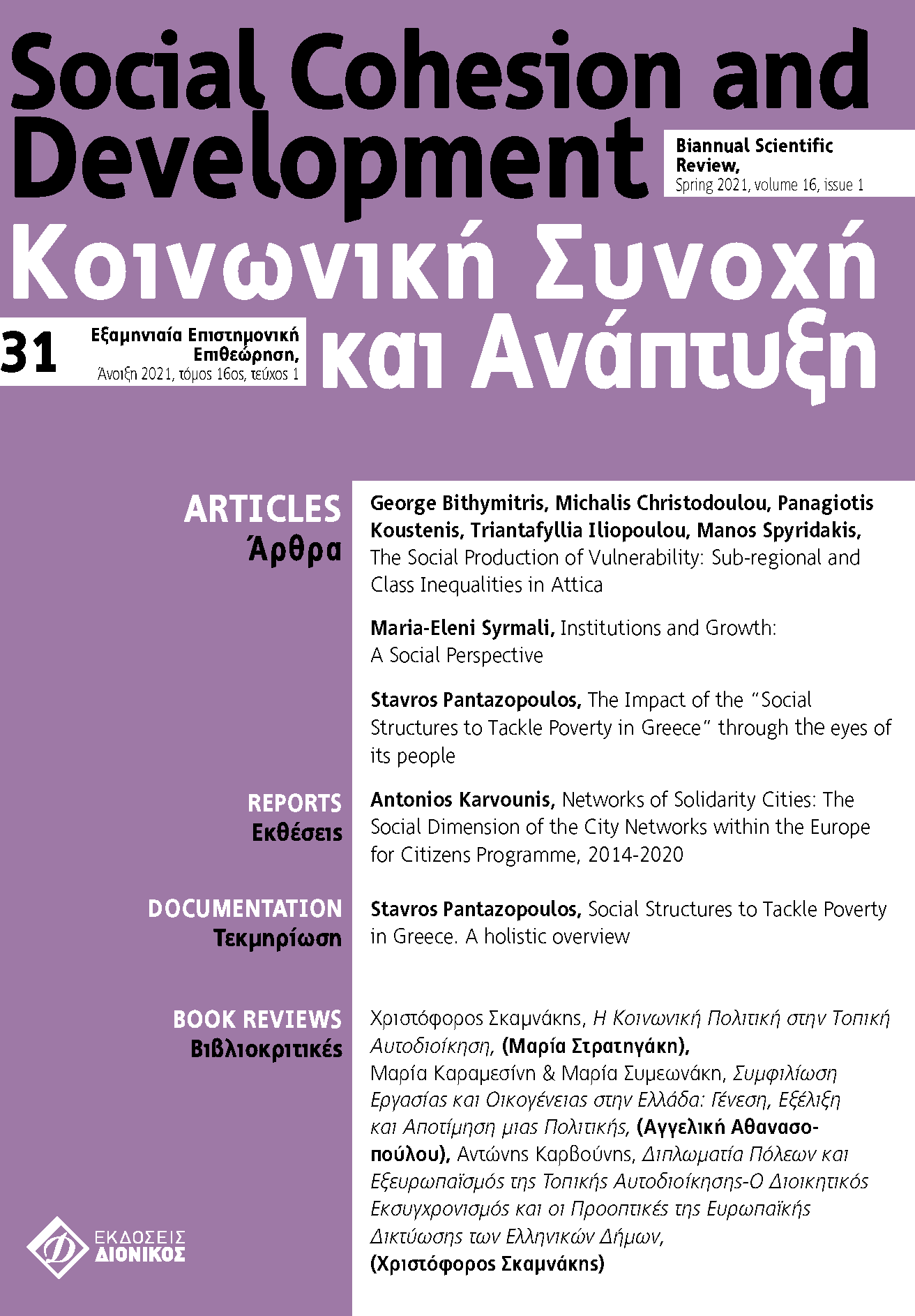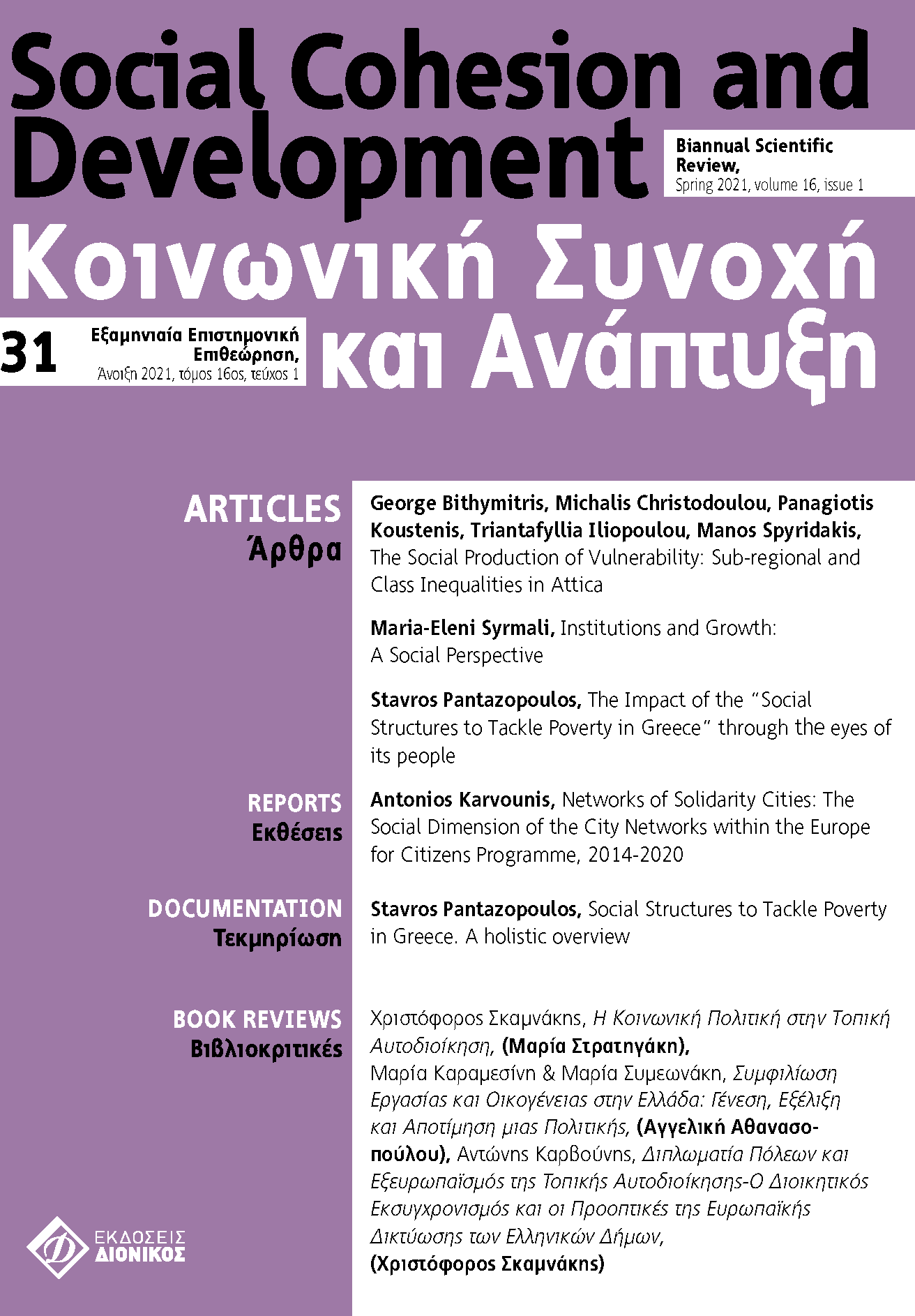Social and political change in post-war Greece. Demographic transformations in the in the 1970s

Abstract
This post-doctoral research endeavors to elucidate the phenomenon of internal migration (astyphilia) that occurred within Greek society during the post-war era. Specifically, the period of scrutiny spans from 1971 to 1981, during which a substantial number of Greek citizens embarked on a massive exodus from rural areas to urban centers. The reasons behind these relocations exhibit variability contingent upon the temporal context and geographical disparities across regions. Illustrative factors contributingto the urbanization of this decade include inadequate agricultural wages, labor scarcity, limited arable land, attempts to industrialize rural areas, and disparities between agricultural and industrial remuneration. The objective of thisarticle is not only to outline the causes of the extensive urbanization observed during this period but also to demonstrate the ensuing consequences for Greek society.
Article Details
- How to Cite
-
Pantazopoulos, S. (2024). Social and political change in post-war Greece. Demographic transformations in the in the 1970s. Social Cohesion and Development, 18(1), 69–88. https://doi.org/10.12681/scad.37336 (Original work published April 1, 2024)
- Section
- Articles

This work is licensed under a Creative Commons Attribution-NonCommercial-ShareAlike 4.0 International License.
Authors who publish with this journal agree to the following terms:
- Authors retain copyright and grant the journal right of first publication with the work simultaneously licensed under a Creative Commons Attribution Non-Commercial License that allows others to share the work with an acknowledgement of the work's authorship and initial publication in this journal.
- Authors are able to enter into separate, additional contractual arrangements for the non-exclusive distribution of the journal's published version of the work (e.g. post it to an institutional repository or publish it in a book), with an acknowledgement of its initial publication in this journal.
- Authors are permitted and encouraged to post their work online (preferably in institutional repositories or on their website) prior to and during the submission process, as it can lead to productive exchanges, as well as earlier and greater citation of published work (See The Effect of Open Access).



